Well, I hadn't heard from my surgeon's office about when my pre-op appointments are supposed to be scheduled for, so I called them. Looks like I won't be scheduled for my first pre-op until 3 days before my surgery. Seriously. Something about the calendar being really full.
I said fine, but I'm really not thrilled about this. I have a growing list of questions I was looking forward to being able to ask my doctor way ahead of time--- starting with, what the hell exactly are you going to do to my face??
The scheduler reminded me that I could email my doctor the questions. My particular insurance carrier provides for email access between doctors and patients. I've used it in the past and it's pretty great, but I was hoping to be able to sit down, face-to-face with the doc to go over everything.
Anyway, aside from wanting to know exactly what the surgery plan is, which she probably wouldn't be able to tell me until the molds were taken anyway (this is also why I asked the scheduler if doing all of that only 3 days before my surgery was enough time for her to put together her game plan), I wanted to ask my doctor about taking some supplements before surgery in order to better prep my body for the massive trauma. I think my diet is one thing to help it prep, but I also feel that some extra vitamins/supplements couldn't hurt. I wanted to find the best homeopathic remedies I could for inflammation, pain, and recovery. I've read a lot about the pain meds and other medicines given for recovery, and the side effects just seem so extreme. Hair falling out? Nausea? Weakness? Dizziness? Perpetually habit-forming? Um ... I find it all kind've scary. But, let me just add that I'm not crazy! I will obviously be doped up at the hospital, and if I am in pain I will take the drugs, for sure. But, in the meantime, I wanted to find more natural stuff to take instead of the pain/inflammation meds once I'm out of the hospital.
A side note on me here: I really believe in finding cures for the body's ailments in nature. We come from dirt, and so I think we should trust the medicines that grow from dirt too. Lots of new cancer drugs, in fact, are now coming from plants that we're only now beginning to study for medicinal properties. Lots of Eastern and Latin-American cultures derive medicines from the environment and have been for thousands of years. My own parents have always believed in herbal remedies. As a kid, when I got a nasty cough, I got honey mixed with cinnamon by the spoonfuls for 3-4 days, after which I'd be all better while other kids were stuffing down cough medicine for weeks.
Okay, back to the point! Here's what I've found after some exhaustive personal (online) research. Please also talk to your doctors before you go out and buy or take all this stuff. I'm also checking with my doctor to make sure she's okay with all this. I did this for me, but I wanted to share it with everyone just in case some of you might want to try a more "natural" approach to recovery. Again, don't get me wrong, the drugs the doc gives me won't be far.
Bromelain: It's a compound found in pineapple and papaya. It apparently helps with swelling and inflammation, and is particularly beneficial to the sinuses and avoiding sinus infections. Many people take it before a facial surgery, and/or during recovery. I've read mixed things about how doctors feel about it. Most say it's okay to take a few days before your surgery, a few say to only take it after. This is why you should ask your doctor. However, I get piece of mind from the fact that Germany recently approved bromelain as an effective supplement for the treatment of swelling/inflammation particularly of the sinuses and nose after surgery or injury.
Turmeric: Turmeric is a plant found in Chinese medicine and other Eastern cultures (Indians use it in curry). Among lots of other uses it's properties have been shown to help with joint pain, and swelling.
Quercetin: Comes from plants, and has shown to help with swelling, and excess congestion.
Arnica: I got a lotion/creme version. Apparently it helps with bruising.
B12: I bought B12 sublingual drops. B12 is apparently good for nerves and nerve regeneration. I'll be taking lots of this immediately after surgery to help make sure I get as much feeling back as possible.
Again, I'm double checking with my surgeon to get her okay before I take any of this stuff. If I get the green-light, my plan is to start the bromelain 2 weeks before surgery, then start the turmeric 3 days before, and finally taking the bromelain, turmeric, and quercetin regularly after surgery. I'll apply the arnica as needed for any bruising.
Hope the info helps! If you need more details the info is just a google search away. :)






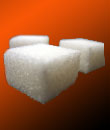 Pro-inflammatory Agent: Excessive sugar intake causes tooth decay and has been linked to increased risks of obesity, inflammation and chronic diseases such as
Pro-inflammatory Agent: Excessive sugar intake causes tooth decay and has been linked to increased risks of obesity, inflammation and chronic diseases such as 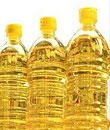 Pro-inflammatory Agent: Common vegetable cooking oils used in many homes and restaurants have very high omega-6 fatty acids and dismally low omega-3 fats. A diet consisting of highly
Pro-inflammatory Agent: Common vegetable cooking oils used in many homes and restaurants have very high omega-6 fatty acids and dismally low omega-3 fats. A diet consisting of highly 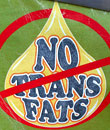 Pro-inflammatory Agent: Trans fatty acids are notorious for their double whammy effect: they increase the levels of ‘bad’ cholesterol, while lowering levels of the ‘good’ cholesterol. But that’s not all they can do. They have also been found to promote inflammation, obesity and resistance to insulin, laying the ground for degenerative illnesses to take place.
Pro-inflammatory Agent: Trans fatty acids are notorious for their double whammy effect: they increase the levels of ‘bad’ cholesterol, while lowering levels of the ‘good’ cholesterol. But that’s not all they can do. They have also been found to promote inflammation, obesity and resistance to insulin, laying the ground for degenerative illnesses to take place.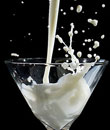 Pro-inflammatory Agent: As much as 60% of the world’s population can’t digest milk. In fact, researchers think that being able to
Pro-inflammatory Agent: As much as 60% of the world’s population can’t digest milk. In fact, researchers think that being able to 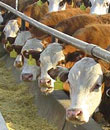 Pro-inflammatory Agent: Commercially produced meats are feed with grains like soy beans and corns, a diet that’s high in inflammatory omega-6 fatty acids but low in anti-inflammatory omega-3 fats. Due to the small and tight living environment, these animals also gain excess fat and end up with high saturated fats. Worse, to make them grow faster and prevent them from getting sick, they are also injected with hormones and fed with antibiotics. The result is one piece of meat which you and I shouldn’t be eating.
Pro-inflammatory Agent: Commercially produced meats are feed with grains like soy beans and corns, a diet that’s high in inflammatory omega-6 fatty acids but low in anti-inflammatory omega-3 fats. Due to the small and tight living environment, these animals also gain excess fat and end up with high saturated fats. Worse, to make them grow faster and prevent them from getting sick, they are also injected with hormones and fed with antibiotics. The result is one piece of meat which you and I shouldn’t be eating.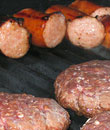 Pro-inflammatory Agent: Researchers at the
Pro-inflammatory Agent: Researchers at the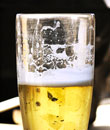 Pro-inflammatory Agent: Regular high consumption of alcohol has been known to cause irritation and inflammation of the esophagus, larynx (voice box) and liver. Over time, the chronic inflammation promotes tumor to grow and gives rise to cancer at the sites of repeated irritation.
Pro-inflammatory Agent: Regular high consumption of alcohol has been known to cause irritation and inflammation of the esophagus, larynx (voice box) and liver. Over time, the chronic inflammation promotes tumor to grow and gives rise to cancer at the sites of repeated irritation.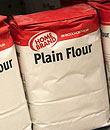 Pro-inflammatory Agent: A lot of the grains we eat nowadays are refined. They are devoid of fiber and vitamin B compared to unpolished and unrefined grains that still have the bran, germ and the aleurone layer intact. This makes refined grains as good as refined sugars, which are practically empty calories. And like refined sugars, refined grains have a higher glycemic index than unprocessed grains and when they are consistently consumed, can hasten the onset of degenerative diseases like
Pro-inflammatory Agent: A lot of the grains we eat nowadays are refined. They are devoid of fiber and vitamin B compared to unpolished and unrefined grains that still have the bran, germ and the aleurone layer intact. This makes refined grains as good as refined sugars, which are practically empty calories. And like refined sugars, refined grains have a higher glycemic index than unprocessed grains and when they are consistently consumed, can hasten the onset of degenerative diseases like 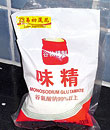 Pro-inflammatory Agent: Some artificial food additives like aspartame and monosodium glutamate (MSG) reportedly trigger inflammatory responses, especially in people who are already suffering from inflammatory conditions such as rheumatoid arthritis.
Pro-inflammatory Agent: Some artificial food additives like aspartame and monosodium glutamate (MSG) reportedly trigger inflammatory responses, especially in people who are already suffering from inflammatory conditions such as rheumatoid arthritis. Pro-inflammatory Agent: Why is this blank? Because it is meant for you to fill in with the food that you’re sensitive to. Many people are sensitive to certain food but are totally unaware about it. Unlike food allergy in which symptoms usually come fast and fiery, symptoms caused by food intolerance take a longer time to manifest. And when they do appear, they are often brushed off as common minor ailments such as tiredness and headaches. But repeated, long-term exposure to food that irritates can cause inflammation and lead to chronic diseases.
Pro-inflammatory Agent: Why is this blank? Because it is meant for you to fill in with the food that you’re sensitive to. Many people are sensitive to certain food but are totally unaware about it. Unlike food allergy in which symptoms usually come fast and fiery, symptoms caused by food intolerance take a longer time to manifest. And when they do appear, they are often brushed off as common minor ailments such as tiredness and headaches. But repeated, long-term exposure to food that irritates can cause inflammation and lead to chronic diseases.